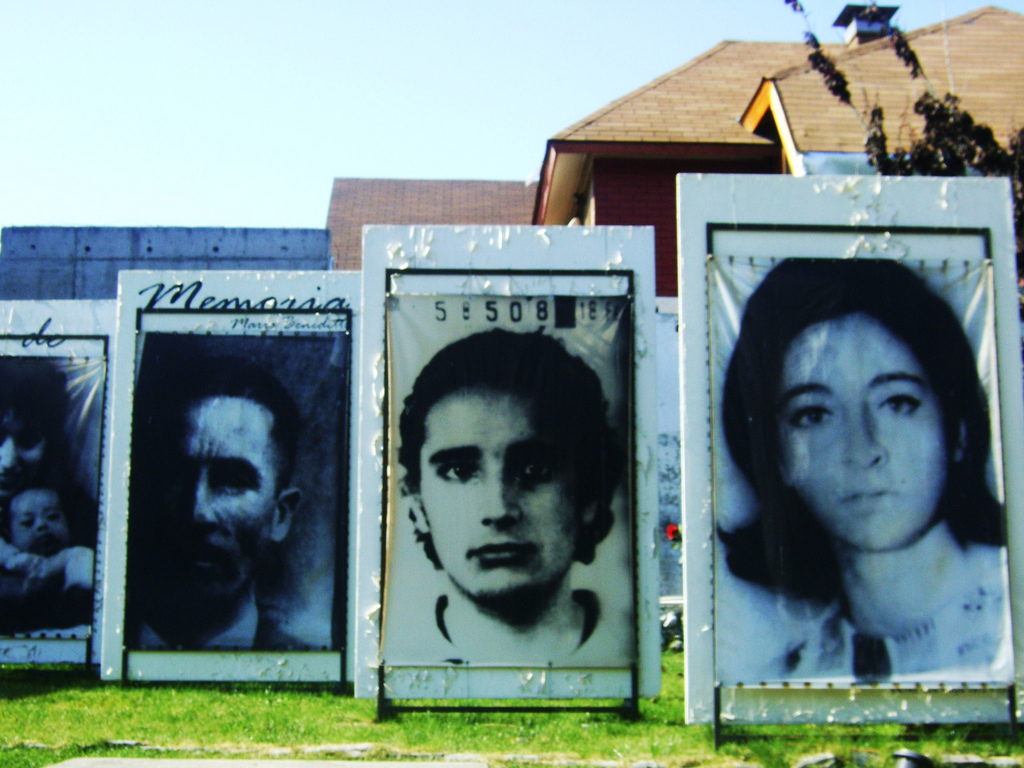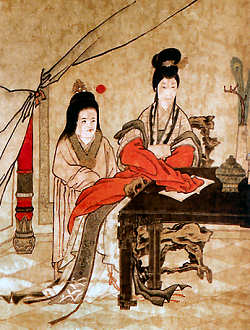|
Zhu Wenkui
Zhu Wenkui (born 30 November 1396) was the elder son and Crown Prince of the Jianwen Emperor of the Ming dynasty, born by Empress Ma, when his parents were Crown Prince and Crown Princess respectively. In 1402, Zhu Di, Prince of Yan sacked Nanjing, both Jianwen and Wenkui disappeared. It was said that Wenkui died in the palace fire. In the period of the Southern Ming, he was posthumously honored Crown Prince Gongmin (by the Hongguang Emperor) and Crown Prince Hejian (by the Longwu Emperor).《南明史》(卷七 志第二·禮中)明安宗的追復作恭愍太子,明紹宗的追復作和簡太子。 He was the only royalty in Ming dynasty that born during the reign of his great-grandfather, and thus Hongwu Emperor was the only Ming emperor that lived to see his great-grandson born. See also *List of people who disappeared {{Short description, Lists of people of unknown locations and statusLists of people who disappeared include those whose current whereabouts are unknown ... [...More Info...] [...Related Items...] OR: [Wikipedia] [Google] [Baidu] |
Taizi
Taizi () was the title of the crown prince of imperial China. Succession Traditional Confucian political theory favored strict agnatic primogeniture, with younger sons displaying filial obedience to the eldest upon the passing of the father. This rather straightforward system was somewhat complicated by polygamy: since later wives were subordinated to the first, their children even when born first were likewise subordinated to hers. Following Lu Jia's conversion of Liu Bang to Confucianism in the early 1st century BC, Chinese dynasties observed it in theory though not always in practice. Liu Bang himself began to favor Concubine Qi, a later concubine, to his primary empress, Lü Zhi, and doubted the competence of his heir Liu Ying. Even worse conflicts could occur when invaders previously observing their own rules of inheritance began to sinicize, as happened to the 10th-century Liao dynasty. Under the Ming dynasty, the traditional Confucian principles of successio ... [...More Info...] [...Related Items...] OR: [Wikipedia] [Google] [Baidu] |
Hongguang Emperor
The Hongguang Emperor (1607–1646), personal name Zhu Yousong, childhood nickname Fuba, was the first emperor of the Chinese Southern Ming dynasty. He reigned briefly in southern China from 1644 to 1645. His era name, "Hongguang", means "great light". In 1646, Zhu Yousong was captured and executed by the Qing dynasty at the Caishikou Execution Grounds. Early life Zhu Yousong was a member of Ming imperial family. He was eldest son of Zhu Changxun, and a grandson of the Wanli Emperor and Noble Consort Zheng. He followed his father to his fief at Luoyang in 1614 and later was granted the title "Commandery Prince of Dechang" (德昌郡王). He was later designated as Hereditary Prince of Fu. In 1641, Li Zicheng's forces invaded Luoyang, and Zhu managed to escape but his father was killed. He held his father's princely title in two years later. In 1644, he escaped again to Weihui to seek asylum from his distant uncle, Zhu Changfang, Prince of Lu (grandson of the Longqing Emp ... [...More Info...] [...Related Items...] OR: [Wikipedia] [Google] [Baidu] |
Missing Person Cases In China
Missing or The Missing may refer to: Film * ''Missing'' (1918 film), an American silent drama directed by James Young * ''Missing'' (1982 film), an American historical drama directed by Costa-Gavras about the 1973 coup in Chile *, a Belgian film that was a 2007 box office number-one film in Belgium *''Missing'', a 2007 film featuring Nao Ōmori * ''Missing'' (2008 film), a Hong Kong horror film directed by Tsui Hark *, a South Korean film directed by Kim Sung-hong * ''Missing'' (2009 short film), a film starring Susan Glover * ''Missing'' (2010 film), a Jordanian film directed by Tariq Rimawi * ''Missing'' (2016 film), a South Korean film directed by Lee Eon-hee * ''Missing'' (2018 film), an Indian film directed by Mukul Abhyankar * ''Missing'' (2019 film), a Hong Kong film directed by Ronnie Chau * ''Missing'' (2023 film), an American thriller film *''Missing'', a 2024 film featuring Satomi Ishihara * ''The Missing'' (1999 film), an Australian film directed by Manuela Alber ... [...More Info...] [...Related Items...] OR: [Wikipedia] [Google] [Baidu] |
Chinese Crown Princes Who Never Acceded
Chinese may refer to: * Something related to China * Chinese people, people identified with China, through nationality, citizenship, and/or ethnicity **Han Chinese, East Asian ethnic group native to China. **''Zhonghua minzu'', the supra-ethnic concept of the Chinese nation ** List of ethnic groups in China, people of various ethnicities in contemporary China ** Ethnic minorities in China, people of non-Han Chinese ethnicities in modern China ** Ethnic groups in Chinese history, people of various ethnicities in historical China ** Nationals of the People's Republic of China ** Nationals of the Republic of China ** Overseas Chinese, Chinese people residing outside the territories of mainland China, Hong Kong, Macau, and Taiwan * Sinitic languages, the major branch of the Sino-Tibetan language family ** Chinese language, a group of related languages spoken predominantly in China, sharing a written script (Chinese characters in traditional and simplified forms) *** Standard Chine ... [...More Info...] [...Related Items...] OR: [Wikipedia] [Google] [Baidu] |
Disappeared Princes
An enforced disappearance (or forced disappearance) is the secret abduction or imprisonment of a person with the support or acquiescence of a state followed by a refusal to acknowledge the person's fate or whereabouts with the intent of placing the victim outside the protection of the law. Often, forced disappearance implies murder whereby a victim is abducted, may be illegally detained, and is often tortured during interrogation, ultimately killed, and the body disposed of secretly. The party committing the murder has plausible deniability as there is no evidence of the victim's death. Enforced disappearance was first recognized as a human rights issue in the 1970s as a result of its use by military dictatorships in Latin America during the Dirty War. However, it has occurred all over the world. According to the Rome Statute of the International Criminal Court, which came into force on 1 July 2002, when committed as part of a widespread or systematic attack directed at any ... [...More Info...] [...Related Items...] OR: [Wikipedia] [Google] [Baidu] |
1396 Births
Year 1396 ( MCCCXCVI) was a leap year starting on Saturday of the Julian calendar. Events January–December * May 19 – Martin I succeeds his brother, John I, as King of Aragon (modern-day northeastern Spain). * July 20 – Queen Margaret I of Denmark, Norway and Sweden publishes the Treaty of Kalmar, proposing the personal union of the three kingdoms of Denmark, Norway (with Iceland, Greenland, the Faroe Islands, Shetland and Orkney) and Sweden (including Finland and Åland).White, Richard (2010), ''These Stones Bear Witness'', AuthorHouse, p. 56. * July 23 – Queen Margaret makes her great-nephew and adopted son Eric of Pomerania joint ruler of Sweden. Eric has already been made joint ruler of Norway. * September – Battle of the North Inch ("Battle of the Thirty"): In a mass trial by combat on the North Inch of Perth, Scotland, the Clan Cameron defeat the Clan Mackintosh. * September 19 – Duke of Brittany John V marries Joan of ... [...More Info...] [...Related Items...] OR: [Wikipedia] [Google] [Baidu] |
Longwu Emperor
Zhu Yujian (1602 – 6 October 1646), nickname Changshou, originally the Prince of Tang, later reigned as the Longwu Emperor of the Southern Ming dynasty from 18 August 1645, when he was enthroned in Fuzhou, to 6 October 1646, when he was captured and executed by a contingent of the Qing army. He was an eighth generation descendant of Zhu Jing, Prince Ding of Tang, who was the 23rd son of Ming founder Zhu Yuanzhang (Hongwu Emperor)., note 24. Early life Before ascending to the throne, he followed his father as the Prince of Tang, their fief being situated in Nanyang prefecture, in Henan province. In 1636, he was stripped of his title by the Chongzhen Emperor and put under house arrest in Fengyang. His former title was transferred to his younger brother Zhu Yumo (). In 1641, Zhu Yumo committed suicide when Li Zicheng invaded Nanyang. After the death of the Chongzhen Emperor 1644, his successor on the Ming throne, the Hongguang Emperor, released the Prince of Tang from his ... [...More Info...] [...Related Items...] OR: [Wikipedia] [Google] [Baidu] |
Southern Ming
The Southern Ming (), also known in historiography as the Later Ming (), officially the Great Ming (), was an Dynasties of China, imperial dynasty of China and a series of rump states of the Ming dynasty that came into existence following the Jiashen Incident of 1644. Late Ming peasant rebellions, Peasant rebels led by Li Zicheng who founded the short-lived Shun dynasty captured Beijing and the Chongzhen Emperor committed suicide. The Ming general Wu Sangui then opened the gates of the Shanhai Pass in the eastern section of the Great Wall of China, Great Wall to the Qing dynasty, Qing Eight Banners, banners, in hope of using them to annihilate the Shun forces. Ming loyalists fled to Nanjing, where they enthroned Zhu Yousong as the Hongguang Emperor, marking the start of the Southern Ming. The Nanjing regime lasted until 1645, when Qing forces captured Nanjing. Zhu fled before the city fell, but was captured and executed shortly thereafter. Later figures continued to hold court i ... [...More Info...] [...Related Items...] OR: [Wikipedia] [Google] [Baidu] |
Zhu Biao
Zhu Biao (10 October 1355 17 May 1392) was the eldest son of the Hongwu Emperor, the founder of the Ming dynasty. Upon the establishment of the Ming dynasty in 1368, Zhu Biao was appointed as crown prince. In order to prepare for his future reign, he received a comprehensive Confucian education. However, he died at the young age of thirty-six in 1392, during his father's lifetime. He was succeeded by his eldest surviving son, Zhu Yunwen, who ascended the throne six years later as the Jianwen Emperor. Zhu Biao was born in Taiping (present-day Anhui), the seat of Zhu Yuanzhang at the time, and was his first son. In 1364, when his father declared himself King of Wu, he named Zhu Biao as his heir. After Zhu Yuanzhang proclaimed himself emperor of the Ming dynasty, Zhu Biao was given the title of crown prince (, ''huang taizi''). He received an intensive education in Confucian teachings under the guidance of Song Lian and grew up to be an educated and humane politician, similar in ... [...More Info...] [...Related Items...] OR: [Wikipedia] [Google] [Baidu] |
Nanjing
Nanjing or Nanking is the capital of Jiangsu, a province in East China. The city, which is located in the southwestern corner of the province, has 11 districts, an administrative area of , and a population of 9,423,400. Situated in the Yangtze River Delta, Nanjing has a prominent place in Chinese history and Chinese culture, culture, having served as the historical capitals of China, capital of various Dynasties in Chinese history, Chinese dynasties, kingdoms and republican governments dating from the 3rd century to 1949, and has thus long been a major center of culture, education, research, politics, economy, transport networks and tourism, being the home to Port of Nanjing, one of the world's largest inland ports. The city is also one of the fifteen sub-provincial city, sub-provincial cities in the People's Republic of China's Administrative divisions of the People's Republic of China, administrative structure, enjoying jurisdictional and economic autonomy only slightly les ... [...More Info...] [...Related Items...] OR: [Wikipedia] [Google] [Baidu] |



